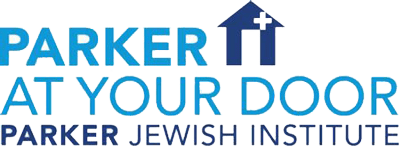We are proud to announce the official launch of its Dementia Guide Model at Parker at Your Door, beginning July 1, 2025. This pioneering initiative is designed to transform the way individuals living with dementia—and their caregivers—experience care in the community setting.
As rates of Alzheimer’s and other dementias continue to rise, Parker’s new Dementia Guide Model offers a proactive, person-centered approach that bridges the gap between diagnosis and ongoing support. The model emphasizes early intervention, care coordination, and resource navigation to promote quality of life, reduce unnecessary hospitalizations, and provide sustained caregiver support.
“Parker has long been a leader in innovative, compassionate care. The Dementia Guide Model reflects our commitment to meeting patients and families where they are, both literally and emotionally,” said Michael N. Rosenblut, President and CEO of Parker Jewish Institute. “We are proud to provide this lifeline to families navigating the complex journey of dementia.”
Under this model, specially trained Dementia Guides will serve as the central point of contact for patients and caregivers. They will conduct home-based assessments, develop individualized care plans, and provide guidance on accessing services, managing symptoms, and planning for the future. The program integrates medical, psychosocial, and caregiver needs into a cohesive plan that evolves over time.
The launch at Parker at Your Door—a home-based medical care program—ensures that patients benefit from the convenience and familiarity of in-home care while receiving dementia-specific support from a multidisciplinary team.
“Too often, individuals with dementia fall through the cracks of a fragmented health system,” said Dr. Pushpendra Sharma, Medical Director of Parker at Your Door. “Our Dementia Guide Model is about empowering families with knowledge, support, and consistent, coordinated care.”
The model is aligned with emerging best practices in dementia care and supports national goals to improve quality and reduce avoidable institutionalization. It is expected to serve as a model for replication across home-based care programs in the region.
